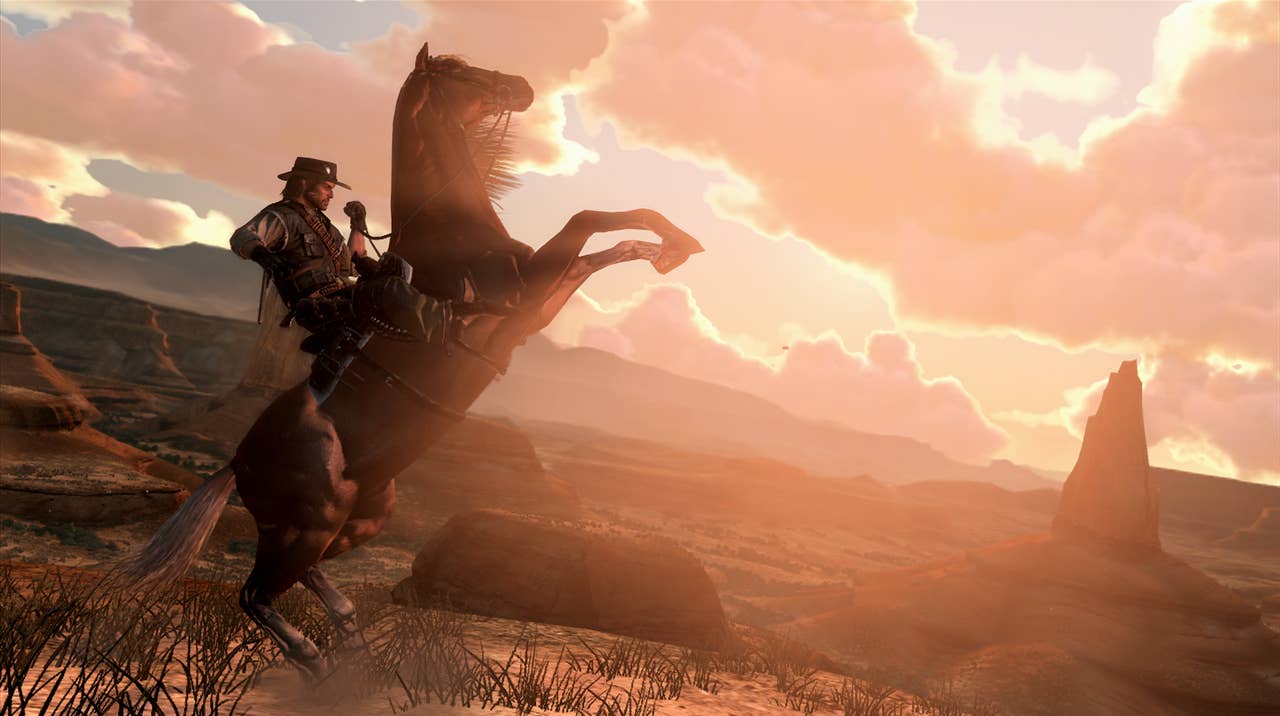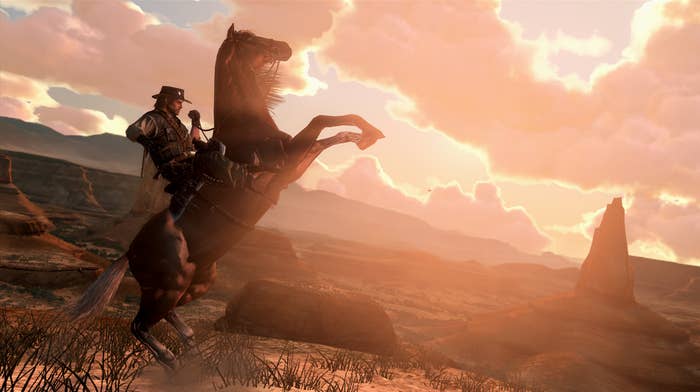
On May 18, 2010, Rockstar Games released Red Dead Redemption, an open-world Western video game, on the Playstation 3 and Xbox 360. Universally acclaimed for its artistry, dramatic storytelling, and freedom of choice, the game sold 17 million copies. But despite the game's reputation today, it's important to remember a time when its success wasn't certain, and Rockstar's developers sought to distinguish it from the studio's prior accomplishments.
In 2005, the year Rockstar began developing Red Dead Redemption, the company had three well-known, established franchises under its belt. All of them took place in urban, modern settings: Max Payne, about a vigilante cop seeking revenge for his family; Midnight Club, about an illicit street-racing club based out of Tokyo; and Grand Theft Auto, about a low-end criminal on the rise.
The latter franchise was the cultural breakthrough; it made mainstream headlines outside the bubble of video game publications. Notorious for its devil-may-care nihilistic attitude and lauded for its open-world gameplay, the GTA series was a broad social satire about class mobility and late-stage capitalism. By 2009, the franchise had grown to encompass six core console games; not to mention multiple handheld games and DLC packages of additional story content.
GTA was the elephant in the room; it dominated video game conversation for the better part of a decade. And so, when Rockstar formally announced Red Dead Redemption in 2009 and debuted its first trailer that May, both critics and fans grasped for the same, reductive comparison:
"It's Grand Theft Auto, circa 1911."
"They should call it Grand Theft Horse."
We would learn, obviously, that this was not the case--that while GTA and RDR shared an open-world premise and a third-person perspective, the tones were divergent.
"We were aware of the comparisons, and we just ignored them and tried to make the best game we could make," said Rob Nelson, Co-Studio Head of Rockstar North, in an interview with Complex. "It’s easy to compare the two [franchises] in a superficial way, because they are open-world games filled with missions and characters. But while the games share some fundamental principles, they are applied in completely different ways."
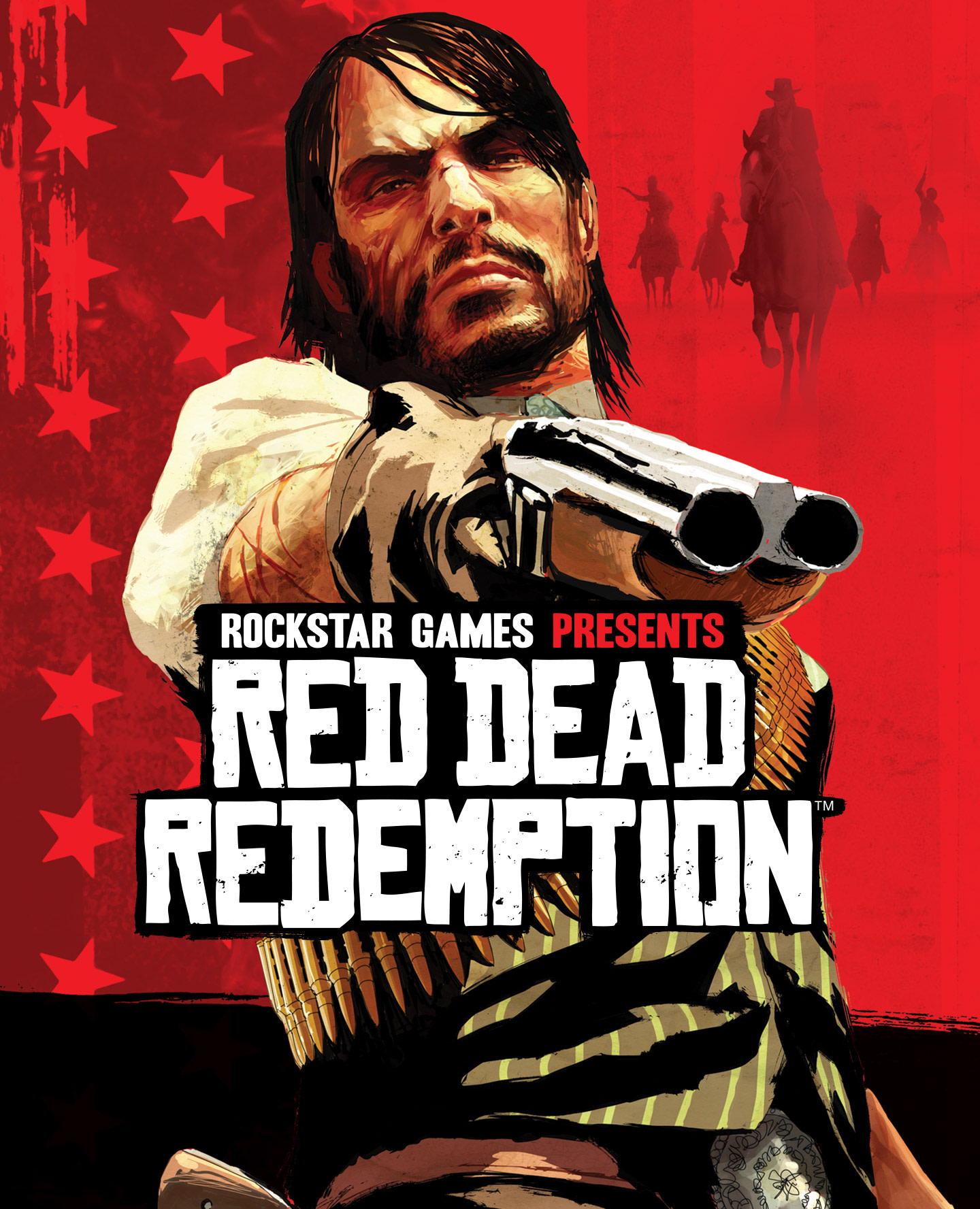
In GTA, the act of driving was perilous but largely impersonal; you wouldn't hesitate to steal another car if it was faster or turned better. It was only later, hours into gameplay, that you would customize one particular favorite or store it in your garage. With RDR, however, the game acknowledged your horse as a living entity. You could not simply steal a wild horse; you had to lasso it and break it. And unlike a GTA car, which would go headlong over a bridge if you wanted it to, an RDR horse could potentially get spooked at the sight of mortal danger, unless it trusted you unconditionally.
RDR's population was sparse, which meant that you didn't have to swerve from oncoming carriages or make hairpin turns in traffic. You tapped a button several times to make your horse speed from a trot to a full gallop; you held down the button to maintain that speed. Instead of dodging pedestrians, you could admire the sprawling grasslands and massive vistas as you traveled from Point A to Point B. GTA threw obstacles in your way to maintain your attention; RDR relied on its scenery and ambiance to carry the quiet moments. You even picked flowers as one of your side missions.
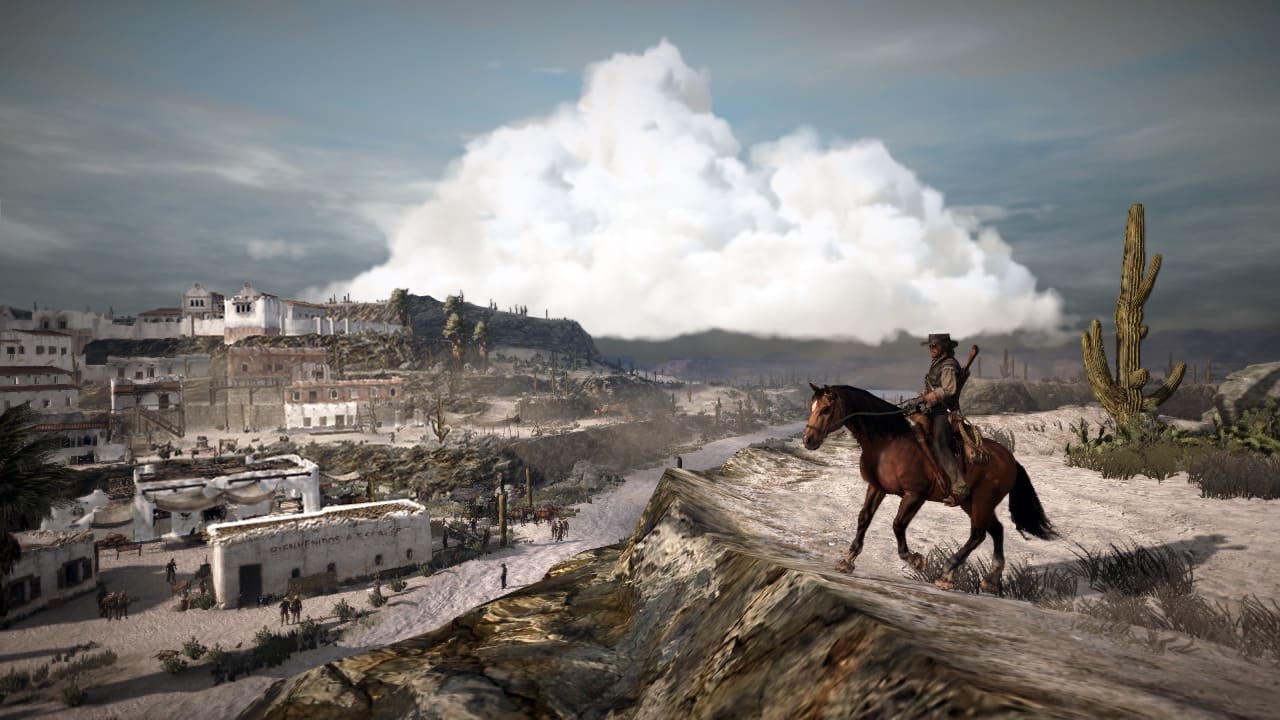
"Every Grand Theft Auto game builds upon the one before," said Nelson. "In the same way, Red Dead Redemption applied everything we had learned about open worlds up to that point to a completely new challenge, which was to make a fun game in a completely different world—one of wide-open spaces filled with plants and wildlife instead of modern urban areas packed with cars and people."
RDR's core gameplay focused around accumulating and acquiring Honor. Honor gave you discounts in stores and higher cash rewards for completed missions. There were some benefits and unique side effects to being a bad man; people feared you and kept a wide berth. But the drawbacks far outweighed the benefits.
You had the freedom to do what you wanted; you could tie a hapless victim on the train tracks, but there were in-game consequences for doing so. In GTA, you grabbed a skull icon to go on a Rampage—a no-strings-attached killing spree. But RDR made you consider your negative choices under threat of penalty. You would kill, but not unless your hand was forced.
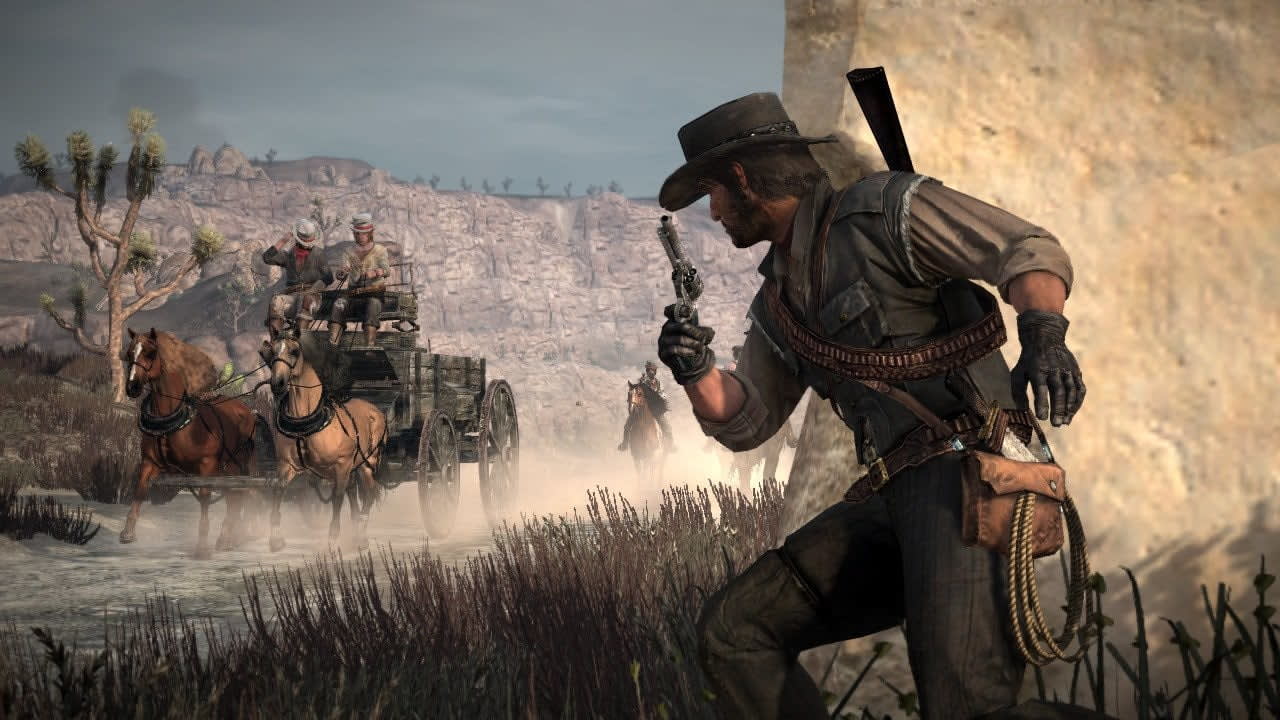
It perfectly mirrored the narrative trajectory of RDR's main character. John Marston spent most of the game tracking down and killing the remnants of his old gang after government officials took his family hostage as collateral. Marston was a man seeking redemption for an evil life that he once lived, long ago. RDR wanted its players to take it seriously, and it did so by encouraging them to play seriously.
Here was a game that demanded our attention and contemplativeness. It subsequently attained a 95 on Metacritic and received over 170 Game of the Year Rewards. It led to a revitalized interest in the Western genre, especially the "Spaghetti Western" revisionist works by Sergio Leone and Sergio Corbucci. And after eight years, players got a sprawling prequel, Red Dead Redemption 2, which built upon and deepened the themes of its predecessor (and was easily crowned 2018's best video game).
Taken together, the two games are an American epic about modernization, betrayal, and the demons of the past. The West may be dead, but that won't stop us from reminiscing and keeping its memory alive.

